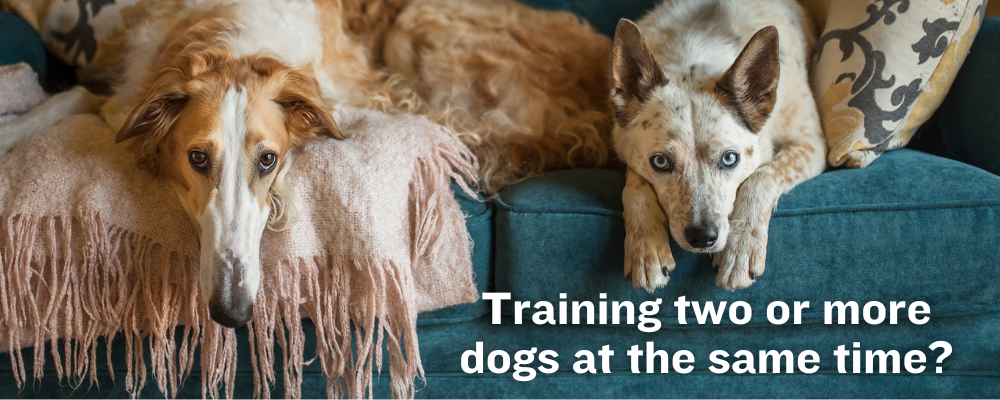It can be shocking and heartbreaking at the same time when our German Shepherd suddenly shows aggression towards strangers. It hard to believe your dog would have behaved like that. It feels like our options are limited for activities that we can involve them in, including just a walk around the neighborhood.
German Shepherds can show sudden aggression towards strangers due to fear, frustration, the guarding of a resource, or innate protectiveness. GSDs will fearlessly protect his family as he was bred to do but can also react to strangers as potential threats in general.
Now all you wish is that you and your GSD can get back to enjoying the company out on the trails again once we know why it’s happening and how to stop it. But you must determine whether your German Shepherd is responding aggressively out of fear or due to his innate responsibility to serve and protect. The goal of this article is to give you enough information to make the right move.
Key Takeaways:
What to do when your GSD shows aggression towards (or bitten) someone
- Stay calm.
- Do not yell, hit or correct him
- Ask the stranger to walk away or stand still, depending on the environment
- Reassure your GSD calmly that he is in fact, “OK” and that you have it under control
- Encourage him to walk away with you with cues such as “this way” or “walk with me”
Why is My German Shepherd Showing Aggression Towards Strangers?
Is your GSD protecting you from the stranger or is he afraid of the stranger? Does he only show aggression towards strangers when you’re nearby? Does he only show aggression towards strangers at the dog park or at the vet?
It can be difficult to make sense of your German Shepherd’s body language in the moment while he’s lunging at the end of the leash or towards someone at the park, but the language is there – we just need to break down some of the important factors that contribute to aggressive behavior in order to know how to move forward.
Factor 1: Early development
German Shepherd puppies have a socialization window of 3 weeks to 3 months of age. If he was not properly exposed to at least 100 dogs and 100 people (among other things) by the time that window closes, it becomes more difficult to help them to feel safe around new dogs and people.
A puppy’s first fear stage occurs between 8-10 weeks of age, then again between 6 and 14 months of age – these are fear periods where they are much more sensitive to their environments and require the most kindness, patience and management to build their confidence.
Factor 2: Negative Conditioned Emotional Response
A -CER (negative conditioned emotional response) to a stranger can occur after only one uncomfortable event – for example, your 7-month-old German Shepherd who has had proper exposures during the socialization period enters a pet store with you to pick out his own toy.
Upon entering the building, a tall man with a hat and beard rushes through the door at the same time, startling your German Shepherd puppy. This one event can create a -CER to men, to the pet store, and even to glass doors. It’s very important to assess each environment that you’re taking your young GSD into to prevent such instances.
Factor 3: Genetics
German Shepherds can be genetically fearful. Some dogs are born with a tendency to feel anxious throughout their lifetime, especially if born to a fearful mother. According to the USDA “stress triggers the release of hormones such as cortisol into the bloodstream.
When these hormones cross the placenta from mother to pup, it changes the set point of the puppies’ stress response system.
Stress also alters the quality of maternal care, which affects the later behavior of the puppies.” These puppies are typically identified as “anxious” from birth and struggle to navigate their world as a typical puppy would.
Factor 4: Improper Training Methods
The dog training world is completely unregulated, leaving dog owners wondering what methods are best to train their German Shepherds. Depending on where you look or who you ask, you will find a plethora of methods and “tricks” to help your dog through stranger aggression – many of these methods are what have actually created the aggression in the first place.
In order to prevent (and resolve) aggression, we must trust in Behavioral Science. It is a myth that large breeds such as the German Shepherd needs a “heavy hand” to train – what he needs is to learn without feeling pain or intimidation, by using force-free, positive reinforcement methods.
Who Does My German Shepherd See as a Stranger?
A German Shepherd sees a stranger as someone they simply don’t recognize. Typically strangers are brand new to the dog, while sometimes it’s a person they have met many times but do not recognize due to a change in appearance, scent or lack of lighting.
The Most Common Reasons for a German Shepherd to Become Aggressive
German Shepherds can show sudden aggression towards strangers due to fear, frustration, the guarding of a resource, or innate protectiveness. Below are the most common triggers:
- In new, busy, or noisy environments that they can’t escape
- Fulfilling the duty of protecting their family when someone gets “too close”
- During rest or sleep, if disturbed or startled
- On-leash where the flight option is removed and only fight remains
- Off-leash in an area (e.g. dog park) where there are multiple triggers (many dogs/strangers)
- While wearing an aversive tool such as a prong collar, choke chain or shock collar
- While recovering from a surgery or during illness or injury
- If after their family home has been broken into or threatened
What Do I Do if My German Shepherd Becomes Aggressive Towards a Stranger While ON Leash?
Leash reactivity is very common – when your German Shepherd is on a leash, his flight option is removed which eliminates any chance of him being able to have any kind of choice as to where he’s going or what he’s walking into.
It’s best to keep calm and encourage him to walk away with an already trained cue such as “this way” or “walk with me” to let him know that he is able to “escape” the stranger.
You will then want to contact a professional behavior consultant to help you to build a training plan to work through this as it can escalate quickly.
What Do I Do if My German Shepherd Becomes Aggressive Towards a Stranger While OFF Leash?
Unless your GSD has been properly exposed to his world, is comfortable with new people entering his environment, and has a strong, reliable recall, he should not be off-leash – off-leash exercise is a privilege for well-trained and stable dogs.
However, if your GSD is off-leash and becomes aggressive towards a stranger, communicate to the stranger to either walk away or to stand still (depending on the environment), stay calm, and try your best to get your GSD’s attention with a happy and animated tone of voice – when he looks at you, start to run in the other direction to encourage him to follow you away from the stranger.
How Do I Train My German Shepherd to Stop Showing Aggression?
A confident GSD will see a stranger as a threat to harm his family/particular person rather than see a stranger as someone who may take someone/something away. A confident GSD can be given directions to move away or to sit down, while a fearful GSD has difficulty following directions at the moment.
Tip #1: Focus on simple obedience command
German Shepherds are often very good about protecting their family from threats, with appropriate, controlled warnings. They are smart enough to understand your cues at the moment.
When asked to “come” or “sit” in the presence of a stranger, they and can follow those instructions without hesitancy or stress.
These German Shepherds should be trained to follow these cues from day one.
When situations like this arise, your GSD should and will know exactly what to do when asked. He will trust that you have control of the situation and that there’s no need to react with escalated aggressive behaviors.
Tip #2: Fear management
A fearful German Shepherd is a much more dangerous one – he reacts out of fear rather than confidence and will offer very little (if any) low-level stress signs before escalating to using his body or his teeth to attempt to remove a stranger.
This is a dog who is not protecting his family, it is a dog who doesn’t feel safe himself and will force a perceived threat away. It is best to contact a professional behavior consultant to help you to build a plan to work through this kind of aggression.
Tip #3: Supervise your kids
Children are often loud. They scream and move quickly and without warning and are typically scary for German Shepherds.
Even a child who is sitting still can be intimidating for them, as they are a much smaller version of their owners. We can teach our German Shepherd that children predict good things – whenever a child appears from a distance, he gets a tasty treat AND the option to move away.
The distance between your German Shepherd and the child needs to decrease slowly over time until children begin to reliably predict treats and space rather than stress. Children also need to be taught (if within your family) how to engage properly with your GSD.
Must read:
Conclusion
German Shepherd s a powerful, intelligent dog who does NOT need a heavy hand to train, and in fact that heavy hand may have created aggression towards strangers in the first place. It’s important to identify though, whether he is protecting you from harm or protecting himself from losing something/someone of value.
Further Questions
What will happen to my german shepherd if he bites someone?
Depending on where you live, you may be forced to euthanize your German Shepherd if he has bitten a human being. Most areas follow a bite scale (see Ian Dunbar Bite Scale) to determine the level of severity and go from there. In minor cases, he may be required to stay in your home; if in public, be muzzled.
When should I ask for help from a professional?
It’s time to ask for help from a qualified professional behavior consultant if you feel like you are unable to physically handle your German Shepherd, if you are struggling to understand why he is showing aggression toward strangers or if he has already bitten someone, to prevent things from getting worse.
Should I decide to rehome my german shepherd if he shows aggression towards strangers?
You may need to consider rehoming your German Shepherd after you have contacted a Veterinarian to confirm that there are no underlying medical issues, a professional behavior consultant or Veterinary Behaviorist and there has been no progress. Rehoming may also not be an option if the dog has become a liability.



